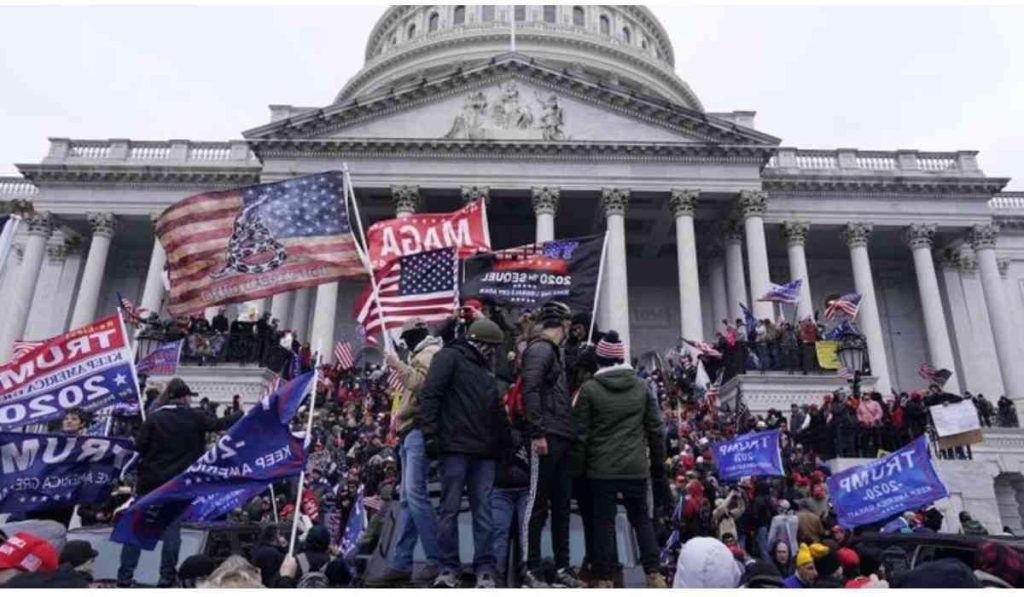The justices of the Supreme Court plan to review a charge of obstruction of an official proceeding. And it involves more than 300 people. The charge refers to the disruption of Congress’ certification of Joe Biden’s 2020 presidential election.
A victory Trump has refused to believe was free, fair, and credible. The charge is among four counts Trump faces in special counsel Jack Smith’s case.
The case accuses Trump of conspiring to hamper the peaceful enforcement of his election loss. The 2024 presidential aspirant also faces conspiracy charges to obstruct an official proceeding.
The court’s decision to weigh in on the obstruction charge could affect the start of Trump’s trial. Right now, it remains scheduled for March 4. The justices are considering whether to rule quickly on Trump’s claim that he can’t be prosecuted.
He says the claim is valid because he did what he did while he was president. Nevertheless, a federal judge has dismissed the argument.
ALSO READ: Court Gives New York The Green Light to Restrict Gun Possession in Sensitive Places
The Supreme Court will hear arguments in March or April and will decide by early summer. The obstruction charge can damn one to 20 years behind bars. It is among the most common felony charges from the huge federal prosecution of January 6, 20 events21.
Over 152 people have faced conviction at trial or pleaded guilty to obstructing an official proceeding, at least 108 of them have faced sentencing.
A lower court judge dismissed the charge against Joseph Fischer, a former Pennsylvania police officer, and two other defendants. Apparently, it didn’t cover their conduct.
The justices will hear the appeal filed by lawyers for Fischer, who is facing a seven-count indictment for his actions on January 6, including the obstruction charge.
The other defendants are Edward Jacob Lang of New York’s Hudson Valley and Garret Miller. Miller has since pleaded guilty to other charges and has bagged up to 38 months in prison. However, he could still face prosecution on the obstruction charge.
POLL—Should Laws Be Enacted To Protect LGBTQ+ Individuals From Workplace Discrimination?
U.S. District Judge Carl Nichols believes that prosecutors bent the law beyond its scope to apply it inappropriately in these cases. Nichols’ ruling is that a defendant must have taken “some action with respect to a document, record or other object” to obstruct an official proceeding under the law.
The Justice Department challenged that ruling, and the appeals court in Washington took the side of the prosecutors, claiming that Nichols’ interpretation of the law was too limited. Other defendants, including Trump, are separately challenging the use of the charge.
ALSO READ: Trump’s ‘Presidential Immunity’ Argument Denied by Appeals Court
Defense attorney Kira Anne West has represented several January 6 defendants charged with obstruction of an official proceeding.
West says the courts will have to “undo a whole bunch of cases” and adjust many sentences if the Supreme Court’s ruling is in their favor. She called it “a watershed day.”
West said, “In our world — defense lawyer world — this is huge.”
You Might Also Like
The ATF Is Going After Homemade Gun Devices
John Oliver Ridicules Mike Johnson as ‘Anti-LGBT Bigot’ Over Shared App
Concerns Grow Over Food Affordability Amid Biden’s Economic Optimism
Former DEI Executive at Facebook Pleads Guilty In a $4 Million Fraud Lawsuit
The Vatican Says Catholics Can Now Cremate Their Dead
